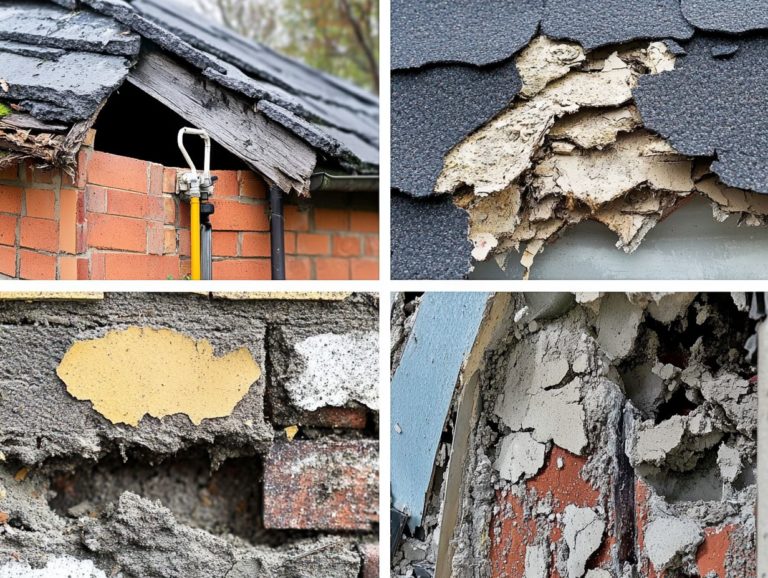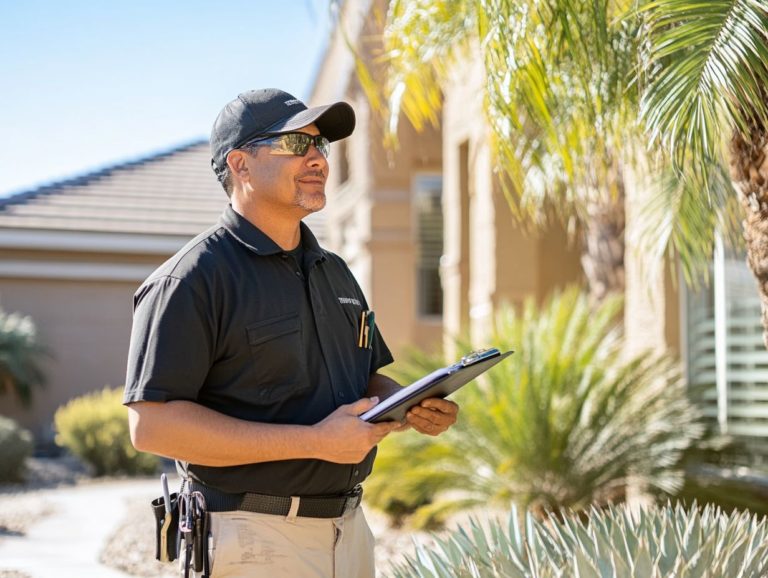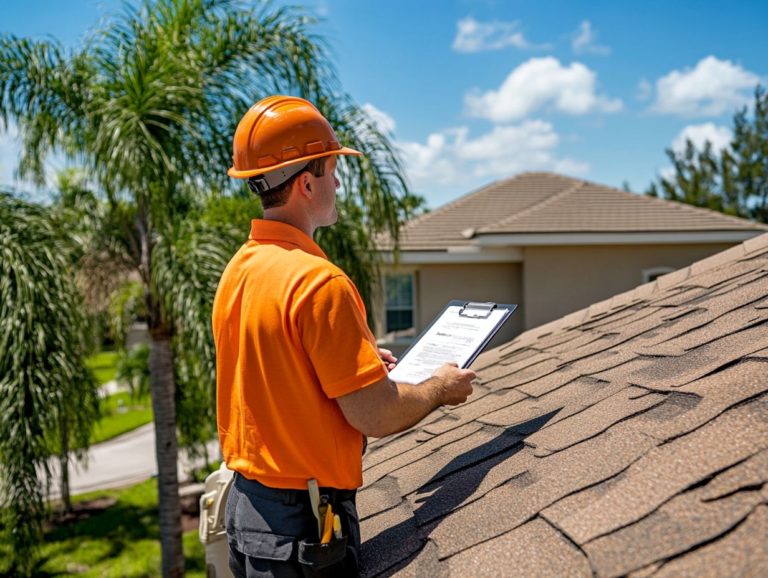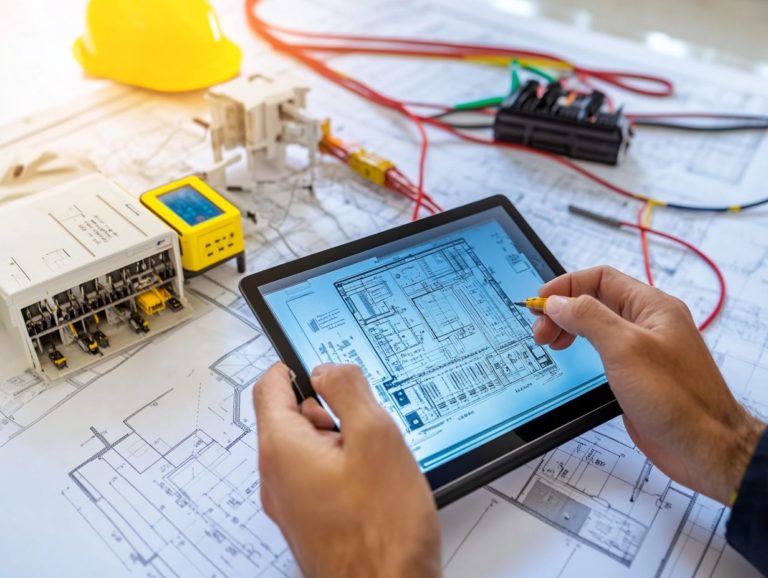How to Communicate with Your Home Inspector
Navigating a home inspection may seem daunting, yet effective communication is your secret weapon for a seamless experience.
From gathering essential documents and addressing any concerns prior to the inspection to grasping the inspector’s role during the evaluation, every step plays a vital part in the process. Post-inspection, reviewing the report and addressing any issues that come up will empower you to make informed decisions.
This article will serve as your comprehensive guide through each phase of the home inspection process, highlighting communication strategies that will elevate your experience.
Contents
- Key Takeaways:
- Preparing for the Home Inspection
- During the Home Inspection
- After the Home Inspection
- Communication Tips for a Smooth Process
- Frequently Asked Questions
- What are some ways to communicate with my home inspector?
- How do I schedule a home inspection?
- Can I ask questions during the home inspection?
- What should I do if I have a question after the inspection?
- How often should I communicate with my home inspector?
- Is it okay to communicate with my home inspector after the inspection is complete?
Key Takeaways:
- Prepare for the home inspection by gathering necessary documents.
- Create a list of concerns to address during the inspection.
- Understand the inspector’s role and ask questions.
- Review the inspection report thoroughly after the inspection.
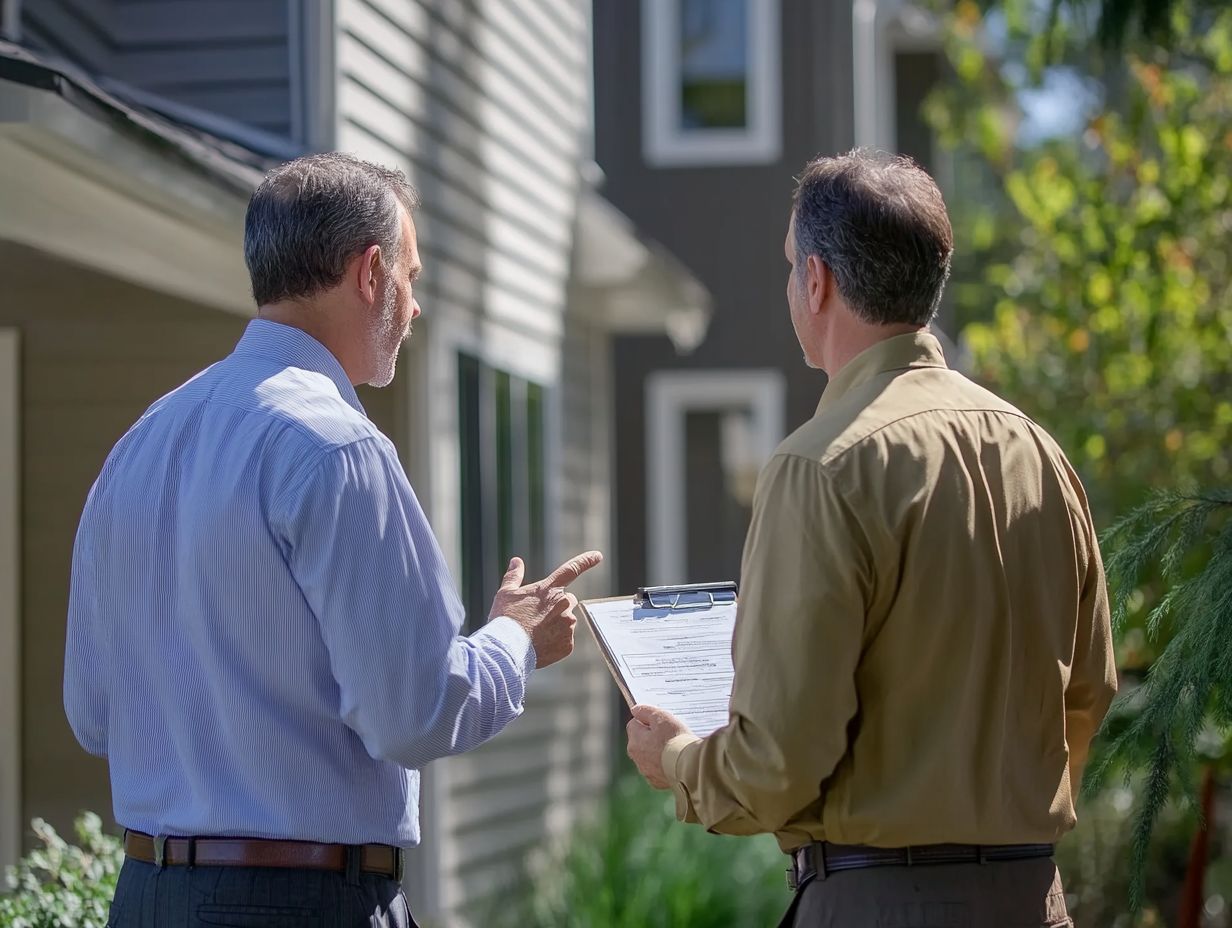
Preparing for the Home Inspection
Preparing for a home inspection is an essential part of the real estate journey, whether you’re buying or selling. You need to know your property’s condition well. It requires the collection of necessary documents and the establishment of clear expectations to facilitate a seamless inspection process.
Collaborating with a qualified home inspector, particularly those associated with reputable organizations like InterNACHI or ASHI, ensures that ethical practices are upheld. This guarantees that the inspection report will be comprehensive and transparent, thoroughly addressing any potential safety hazards or defects you should be aware of.
Gathering Necessary Documents
Gathering the necessary documents before a home inspection is essential. You ll want to compile important paperwork like contracts, past inspection reports, and details about any renovations that could impact the property s condition.
Also, don t forget to include maintenance records that demonstrate routine care, as well as any permits secured for major renovations.
Having this comprehensive set of documents prepared not only aids the inspector in grasping the home’s history and maintenance but also helps in identifying potential issues that might not be immediately visible.
By providing insights into previous repairs and upgrades, these records enhance the inspection process, leading to a more thorough and informed inspection report. This thoroughness ultimately brings peace of mind for you as a prospective homeowner.
Creating a List of Concerns
Creating a list of specific concerns before your home inspection can be invaluable in addressing key issues, such as safety hazards and both major and minor defects that may arise during the process.
To develop this list effectively, take a moment to conduct your own visual inspections of the property. Look for signs of wear and tear or any irregularities that catch your eye and might need further attention.
Engaging in a conversation with previous owners or tenants can also be beneficial; their insights can provide you with valuable context that enhances your understanding of the property.
Carefully writing down your concerns helps the inspector focus on what matters most to you. This collaborative approach can result in a more targeted inspection report, ultimately empowering you to make informed decisions about your potential investment.
During the Home Inspection
During the home inspection, it’s essential for you to grasp the inspector’s role and actively participate in the process. This engagement ensures that all findings are communicated clearly and effectively, empowering you to make informed decisions about any necessary repairs.
A skilled inspector will not only assess the condition of the property but will also enhance your understanding by explaining complicated terms in simple words, ensuring you feel confident in your choices.
Understanding the Inspector’s Role
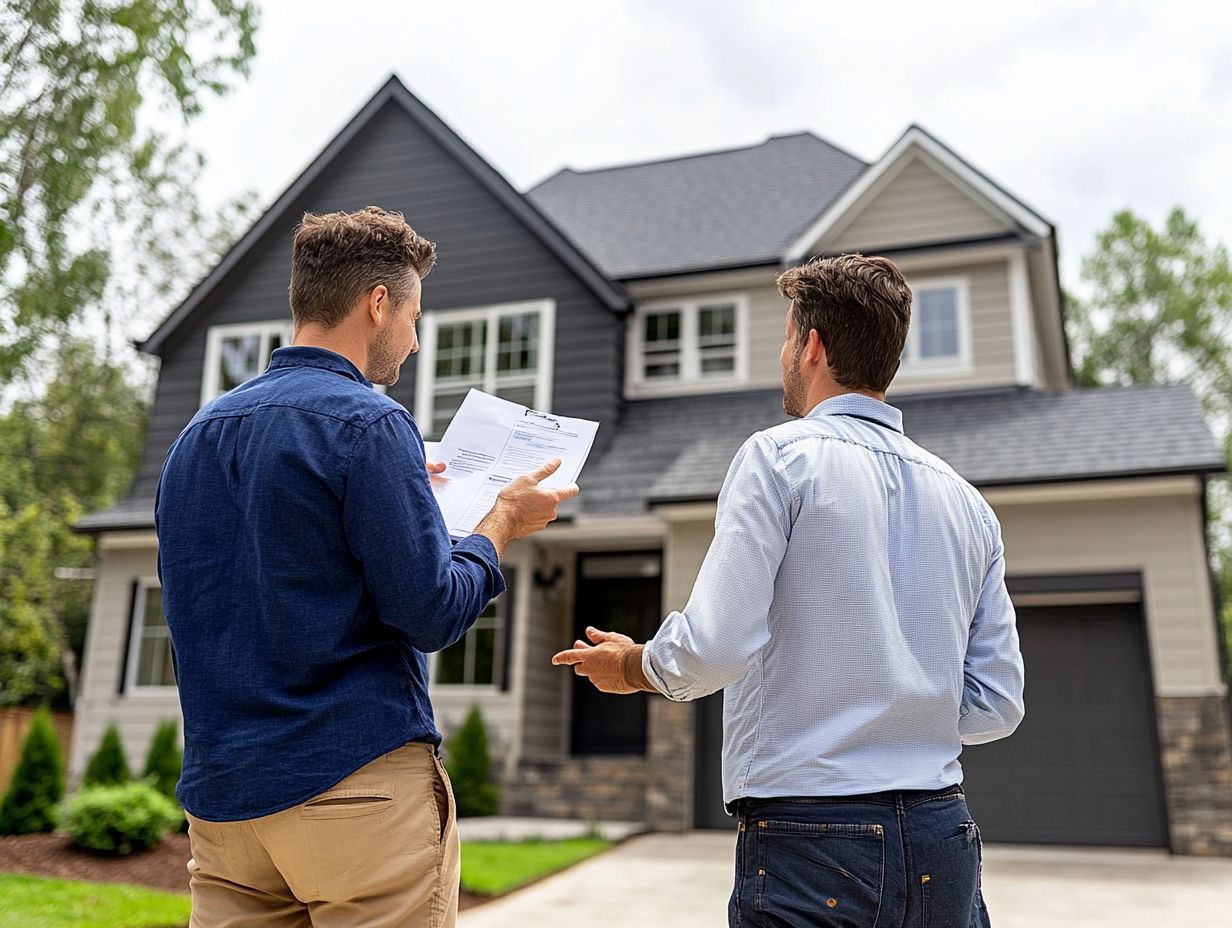
Understanding the role of a home inspector is crucial for you. They are responsible for identifying property defects, adhering to standards of practice, and ensuring the health and safety of residents.
These professionals carefully check various aspects of a property, from the strength and stability of the building to electrical systems. Their commitment to industry standards guarantees a reliable evaluation process, fostering trust between you as a homebuyer and the seller.
By pinpointing both significant flaws and minor imperfections, they provide insights that can shape your negotiation strategies and decision-making. For you, this knowledge could mean the difference between a solid investment and costly repairs down the line.
Sellers also gain valuable awareness of necessary fixes before listing their property.
Asking Questions and Taking Notes
Asking questions and taking notes during the home inspection can significantly elevate your communication with clients. For more insights, check out how to get the most out of your home inspection. It can also streamline negotiations regarding repairs highlighted in the inspection summary.
These practices enhance your understanding of the property s condition and empower you to make informed decisions moving forward.
Engaging actively with the home inspector helps clarify concerns and unveils insights that may not be immediately evident in the report. Additionally, knowing how to follow up after a home inspection can further enhance your understanding of the property’s condition.
Carefully documenting details about necessary repairs serves as an invaluable reference when discussing costs and potential resolutions with the seller.
This proactive approach during the inspection phase positions you favorably in negotiations, ultimately leading to better outcomes for you as a prospective homeowner.
After the Home Inspection
After the home inspection, review the report carefully. This step is vital to spot issues early and protect your investment.
By doing so, you uphold the integrity of the transaction and maintain the trust of your clients throughout the real estate process.
Reviewing the Inspection Report
Reviewing the inspection report is a key step in your home inspection journey. It provides a thorough account of the findings and clarifies the property’s condition.
To navigate this essential document effectively, take your time to understand any highlighted issues, especially significant concerns like structural problems or critical maintenance needs.
Begin by summarizing the key findings and categorizing them into urgent and non-urgent issues. Then, prepare questions or discussion points to address any uncertainties that may arise.
Engaging in an open dialogue with the seller’s or buyer’s agent can streamline the negotiation process, guiding you on a knowledge-based decision-making path.
Be ready to discuss potential repairs and consider the implications of each finding on the overall transaction. This sets the stage for a transparent and constructive conversation.
Addressing Any Issues
Addressing any issues highlighted in the inspection report is imperative for you. It gives you the power to negotiate repairs and plan necessary actions while ensuring alignment with client expectations.
Establishing a clear line of communication with the seller is crucial in this scenario. By approaching the seller with a comprehensive understanding of the inspection findings and knowing how to prepare for a home inspection, you can present your concerns in a rational and collaborative manner.
It’s essential to emphasize the shared objective of reaching an agreement that benefits both parties. Maintaining professionalism throughout these discussions cultivates a constructive atmosphere.
Active listening and empathy will go a long way in ensuring the seller feels understood and respected. This ultimately leads to a more favorable outcome for everyone involved.
Key Takeaways
In summary, understanding the inspector’s role, asking key questions to ask your home inspector, reviewing the inspection report, and addressing any issues are crucial steps in the home-buying process. Engage actively and maintain clear communication with all parties involved to ensure a successful transaction.
Communication Tips for a Smooth Process
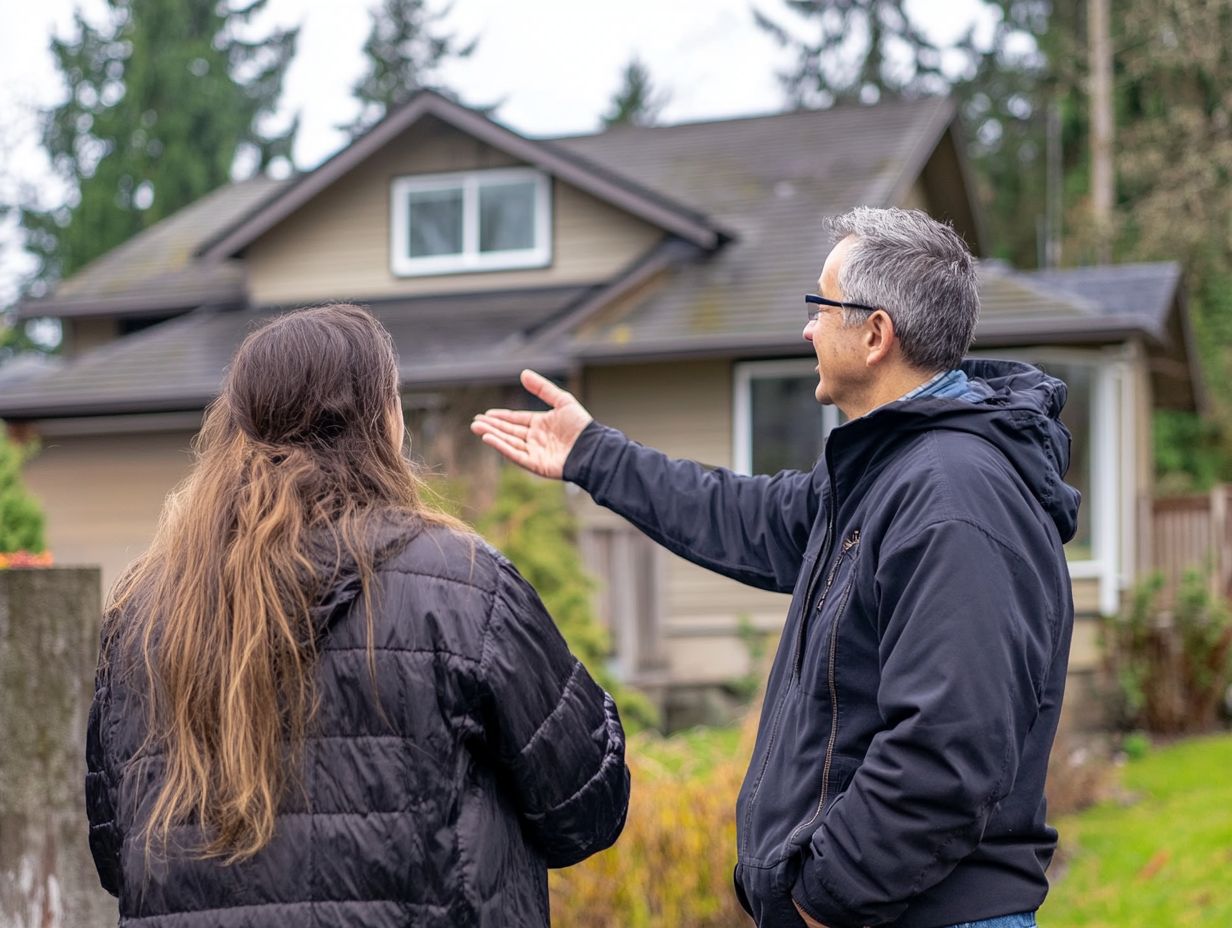
Effective communication is essential for ensuring a seamless home inspection process.
By employing a range of communication strategies such as text messaging, automated reminders, and proactive client engagement you can ensure that everyone involved stays informed and aligned every step of the way.
This thoughtful approach not only enhances the experience but also fosters trust and clarity among all parties.
Effective Communication Techniques
Effective communication techniques require you to maintain privacy while addressing client inquiries, all while upholding professional standards that ensure a positive inspection experience.
Both active listening and providing clear explanations are essential in cultivating a strong relationship with your clients.
By genuinely hearing their concerns, you create an atmosphere of trust and understanding.
Encouraging questions not only empowers your clients but also showcases your commitment to transparency.
These strategies elevate your interactions and reflect the high standards that the industry demands.
When clients feel respected and well-informed, they re more inclined to view the entire process positively and remain loyal to your services.
Handling Disagreements or Conflicts
Handling disagreements or conflicts during the home inspection process requires your adept negotiation skills, a steadfast commitment to ethical practices, and a keen focus on maintaining trust between the seller’s agent and the buyer’s agent.
Navigating conflicts is crucial! It s essential to foster an environment where everyone feels heard.
As an effective negotiator, you prioritize active listening, ensuring that every voice is heard and valued throughout the discussion.
By fostering an atmosphere of mutual respect, you pave the way for solutions that satisfy everyone involved.
Incorporating ethical practices, such as transparency and honesty, is essential for building trust, enhancing relationships, and mitigating future disputes.
Ultimately, your goal is to achieve a resolution that honors the interests of both the buyer and seller while upholding professionalism at all levels.
Frequently Asked Questions
Here are some common questions that can help you navigate your home inspection.
What are some ways to communicate with my home inspector?
There are multiple ways to communicate with your home inspector, including phone calls, emails, and in-person conversations. To ensure a smooth inspection process, it is important to know how to communicate with your home inspector from the beginning.
How do I schedule a home inspection?
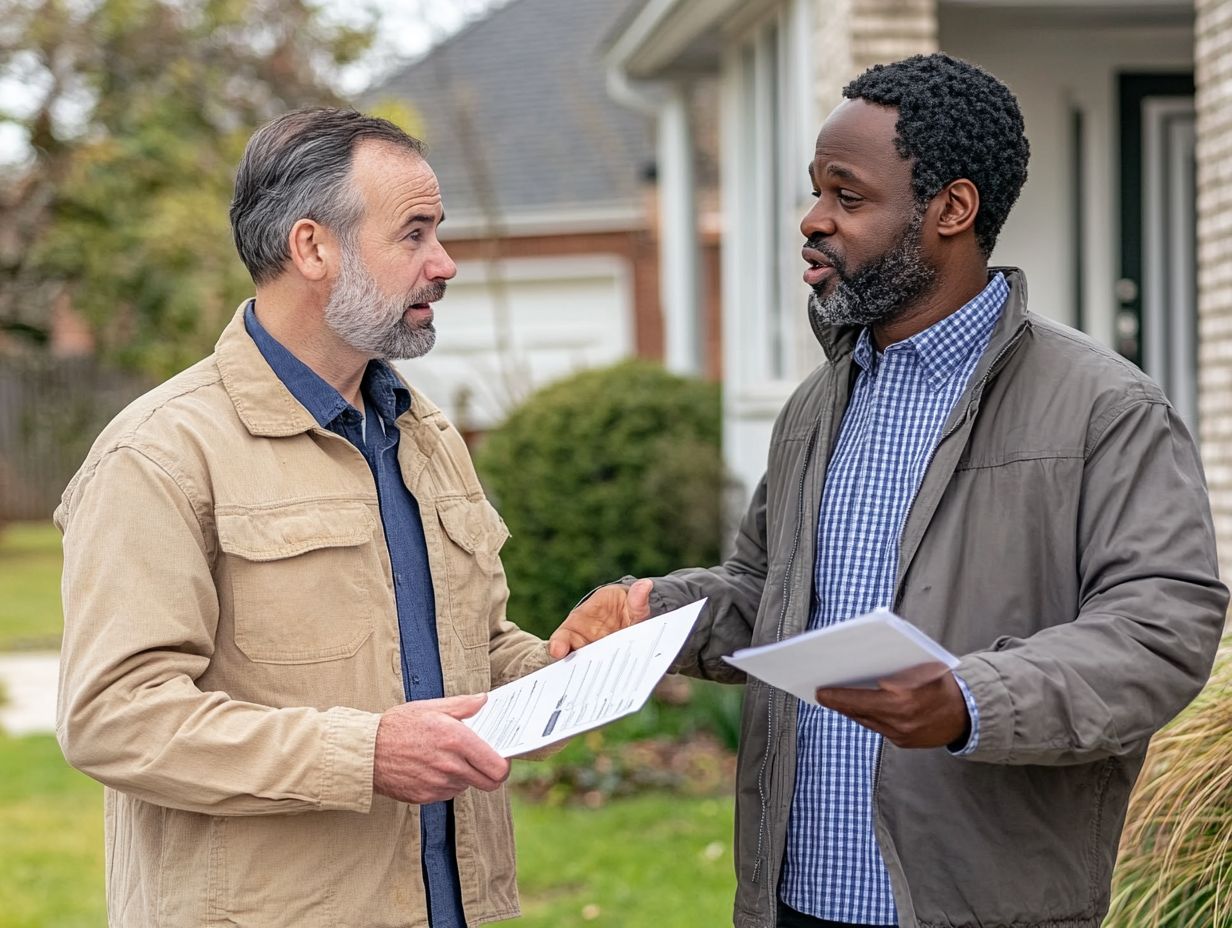
You can schedule a home inspection by contacting a reputable home inspection company and setting up an appointment. Make sure to choose a time and date that works for both you and the inspector.
Can I ask questions during the home inspection?
Absolutely! It is encouraged to ask any questions you may have during the home inspection. Your inspector is there to help you understand the condition of the home and address any concerns you may have.
What should I do if I have a question after the inspection?
If you have any questions or concerns after the inspection, don’t hesitate to reach out to your home inspector. They can provide clarification or further explanation on any issues that were found during the inspection, including how to prepare for your home inspection.
How often should I communicate with my home inspector?
Communication with your home inspector should be consistent throughout the inspection process. To ensure a smooth experience, it’s essential to understand how to communicate with your inspector and address any issues or questions as they arise.
Is it okay to communicate with my home inspector after the inspection is complete?
Yes, you can still communicate with your home inspector after the inspection is complete. If you have any further questions or concerns, they will be happy to assist you and provide additional information or recommendations, including insights on how to make the most of your home inspection.
Ready to schedule your home inspection? Contact us today!

